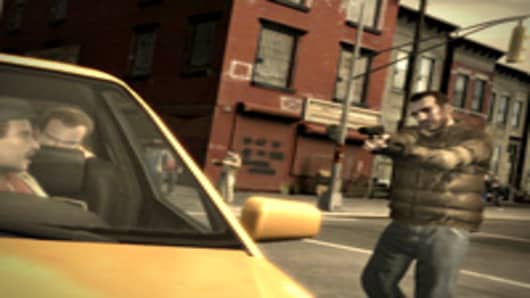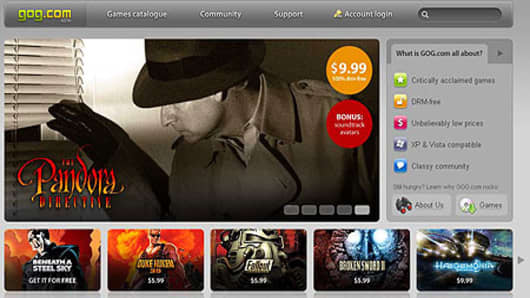While video game sales top Hollywood’s annual box office receipts these days, they still have a lot to learn from the movie industry.
Old movies, you see, never die. Good or bad, they eventually find their way onto DVD. Then they move into the world of syndication. Before you know it, you’re watching “Big Trouble in
Little China” for the 25th time as you wait for your laundry to finish the spin cycle.
Games? They traditionally hit store shelves and are never heard from again (except in sequels). Slowly, though, publishers and developers are learning that just because a title has fallen off the sales charts doesn’t mean it has outlived its usefulness.
Digital distribution services such as Steam, GOG.com and GameTap, along with Microsoft’sXbox Live Arcade service, are letting publishers tap their back catalog of titles and reintroduce them to audiences.
Electronic Arts, Take Two Interactive Software, , Disney, Sega and others are all making hay off their back catalog games. Convincing the companies of the opportunity hasn’t always been easy, though.
“With publishers, it took a while for them to catch onto the idea, especially since we’re doing [digital rights management]-free releases and trying to incentivize people to buy these products and not go onto a [file-sharing program] and download them,” says Tom Ohle, vice president of marketing for GOG.com.
Steam, the digital distribution arm of Valve Software, had it a little easier. Since Valve had used the service to distribute its own games before seeking clients, it was able to approach publishers with hard data. Today, the company offers more than 700 games from over 100 publishers.
“Some of them came to it instantly,” says Jason Holtman, Steam’s director of business development. “Others it took some prompting to remind them the back catalog was there. They were living in a world where products lasted for two or three months—and then they didn’t think about them any more.”
To be fair, there wasn’t a lot to think about five years ago. Putting an older game back on store shelves was a risky, expensive and typically fruitless exercise. Retailers prefer to focus on hot, new games—and the few who would accept older titles typically either tossed them in the bargain bin or made them impossible for customers to find.
As digital download services began to become more pervasive, though, publishers learned that tweaking games so they would run on modern systems didn’t carry a substantial cost.
It was Time Warner that really began to change the thinking about back catalogs. In 2005, the company launched GameTap, a subscription service allowing people to play legal copies of older games.
Gamers who wanted to play those titles previously would download illegal copies, though publishers rarely complained about the practice since they weren’t making anything from the games anyway.
Activision, Sega, Atari and Namco were among the first companies to sign on to GameTap. The service attracted a notable audience, but Time Warner sold it earlier this year to Paris-based Metaboli.
Since GameTap’s launch, though, publishers and developers have learned that releasing older games can heighten interest in new ones.
"This turned into a really good opportunity for us to exploit … products that might have been off of retail shelves for a while," says Steve Glickstein, vice president of licensing for 2K, a wholly owned publishing label of Take Two. "It certainly gives these hardcore PC guys the opportunity to experience a game they might not have [experienced] in the past, which might increase their interest in the brand."
Publishers won’t break out how much the sale of back catalog games boosts their revenue. Digital providers, though, say it might be more than most people think.
“Steam is to the size where it rivals major retailers on what it can do for a publisher,” says Doug Lombardi, Valve’s vice president of marketing. “When it gets to a company that has a big back catalog, it can make a big impact.”



